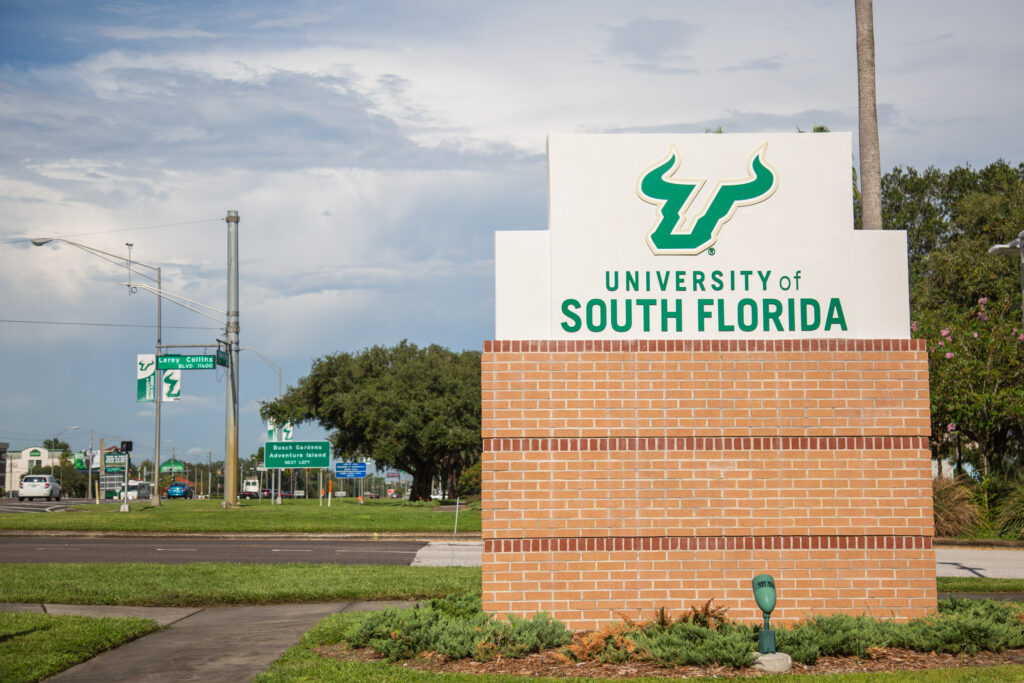USF’s Success and Wellness Coaching program terminated due to budget cuts

USF’s Success and Wellness Coaching program will be terminated July 2 after providing students with resources and talks with professional coaches to alleviate concerns about their futures since 2017.
The Student Success unit, which includes the Success and Wellness Coaching program, faced a $1.4 million budget cut during the 2020-21 academic school year from a former operating budget of $18.6 million, according to Alexis Mootoo, associate vice president for resource management and community development.
Part of this cut meant Success and Wellness Coaching, with a budget of $261,000 for the 2020-21 school year, would no longer be offered at USF.
The termination of the program will affect 526 active students and 20 faculty members, according to Jennifer Bleck, current director of the Success and Wellness Coaching program. She said the announcement happened so quickly there wasn’t much time to discuss alternate options to ending the program. The termination was made public June 21 in an email to students who had previously participated in the program.
“It was announced to me, and then the following day it was announced that the coaches were being laid off, so at that point it was just something that was going to happen,” she said. “So to just be frank and honest, we didn’t do much to try to stop that from happening.”
The program will continue helping students in its final week up until July 2, and around 50 sessions have already been booked leading up to the final date, according to Bleck.
“One thing that we’ve done is contact [via email] our entire student database from the past year and a half of students who have expressed interest in coaching or signed up for coaching, and offered them to come back in for two to four more sessions,” she said.
“I told them what was going on very bluntly, and said this was an opportunity to meet with a coach if they haven’t yet or if they want to return to meet with one, to think ahead of planning for future semesters and how to manage stress as they move forward in life. We’ve had about 25 of them come back from that since then.”
Once students utilize their final opportunities to meet with a coach before July 2, all students who have been involved with coaching will be sent exact contact information about other programs being offered under the Student Success umbrella and told how those services can help them, according to Bleck.
Now that there are a wider variety of programs available, Bleck said students will have even more opportunities when seeking help aside from Success and Wellness Coaching, such as the Academic Success Center, the Counseling Center and Student Outreach and Support services.
“The most common thing students ever came in for was time management, stress management and academic success,” she said. “So, the one nice thing is that there’s a lot of other services for those three things out there. They are all going strong and have plenty of programs planned throughout the summer in the fall.”
While the termination of the program may come as a shock to many USF students, Mootoo said the decision was made with each student’s best interest in mind, and the transition to other programs should prove to be smooth.
“We have advocated on behalf of students to USF leadership consistently,” Mootoo said. “I am confident that the decision was made taking the USF population into consideration, because all of us at Student Success are very much dedicated to the students.”
While the program itself may be leaving soon, Bleck said the notion of providing students assistance through coaching and mentoring is here to stay at all USF campuses.
“[The other programs] will be able to really help students on those topics that they came to coaching for,” she said.
“We’ve done a lot of work over the last few months in presentations and training to help our other colleagues in student success on how to better integrate coaching skills into their practices. So, this idea of coaching isn’t fully going to be gone from the student experience.”
Bleck said the coaches were able to pass on their skills to individuals at the Center for Victim Advocacy so they can integrate coaching techniques into their counseling.
“We met with them and talked with them a lot about coaching skills and how to use them within their work,” she said. “So a lot of these ideas of goal setting, forward thinking and action steps will still be able to be within conversations from other units.”
Even though the Success and Wellness Coaching program is coming to an end, Bleck said she is confident students will utilize their resilience to navigate this sudden detour.
“I am very reassured that the students will be able to rise above this, because from what I’ve seen of our students in the program, they’ve all been really successful because of their work, not because of what the coaches were doing,” she said.
“They just had a place to talk out loud about what was going on in their own minds. They were able to do it on their own, and I have every bit of confidence that students will be able to be just as successful in the future.”







